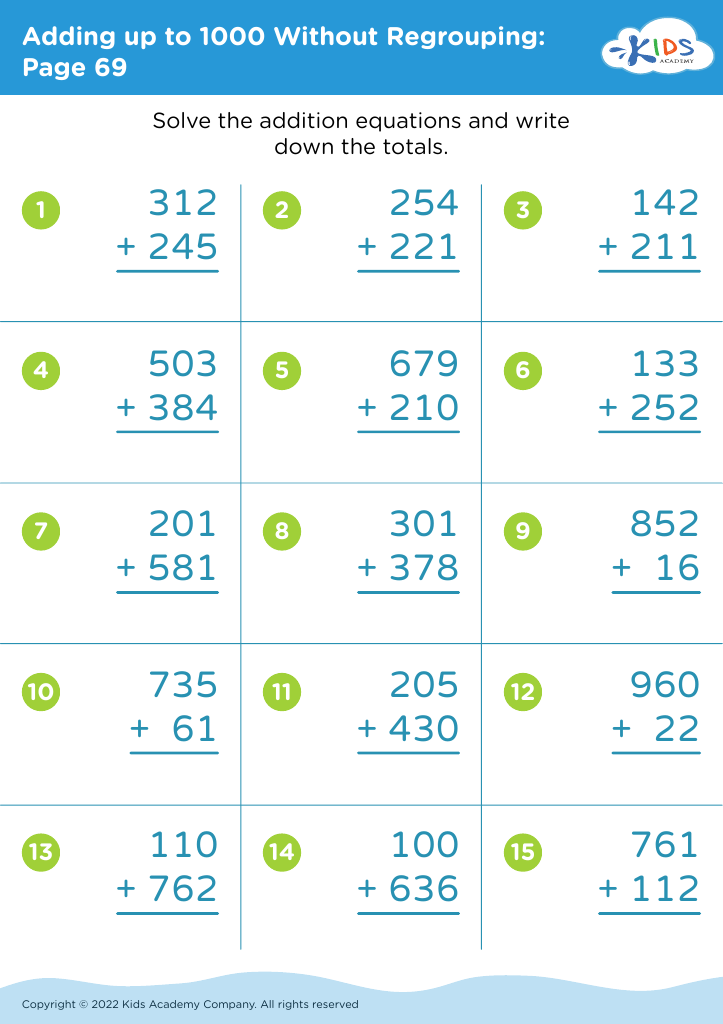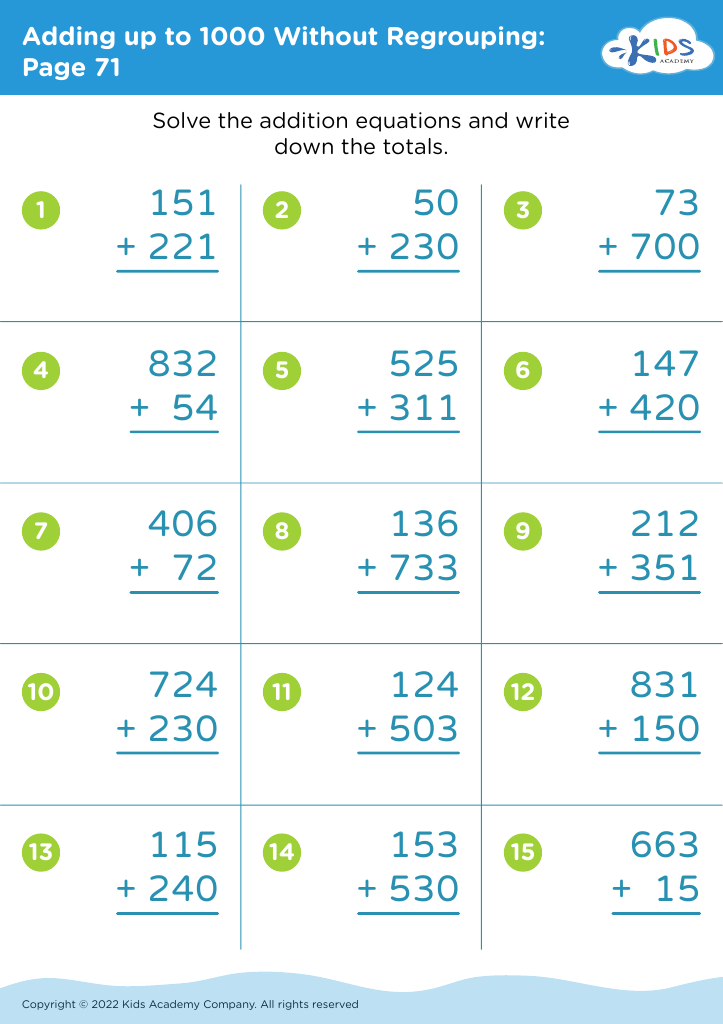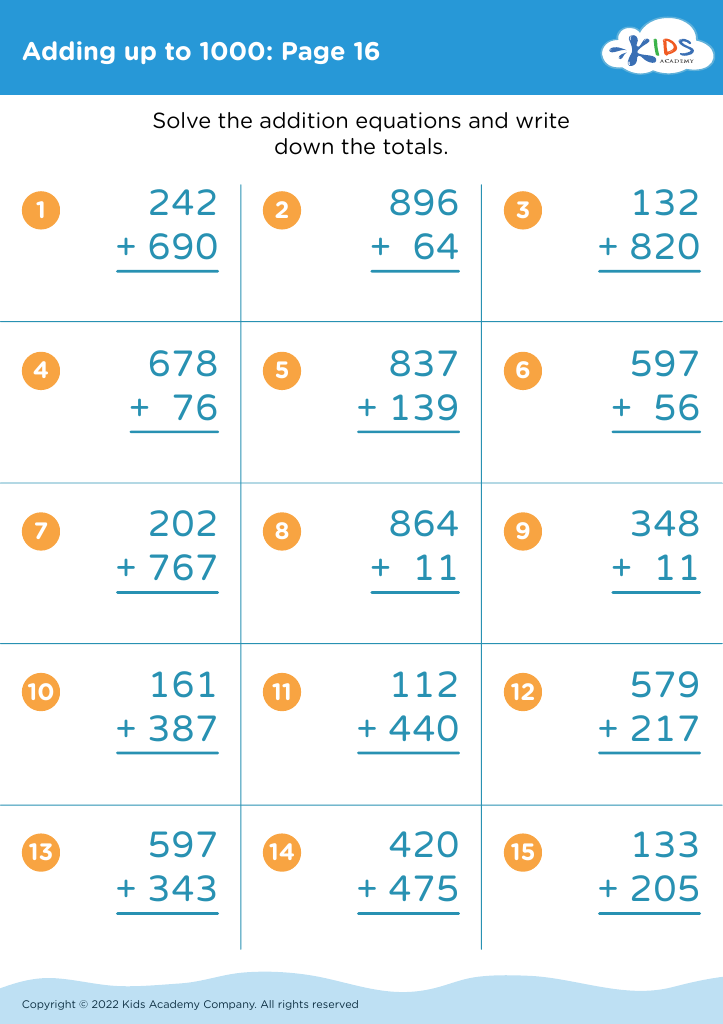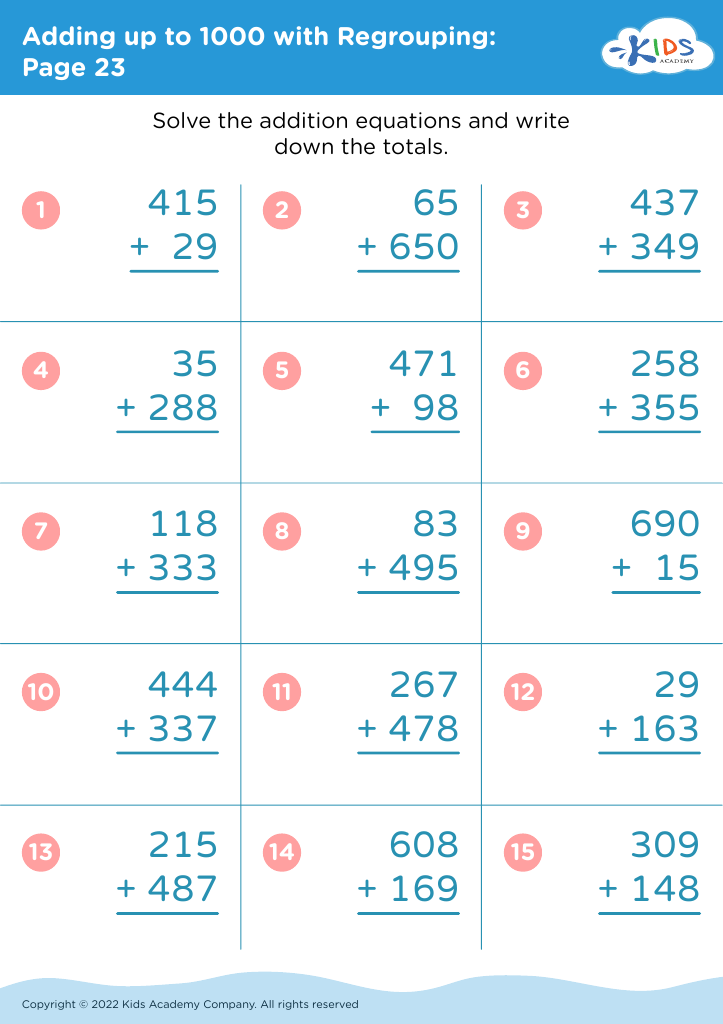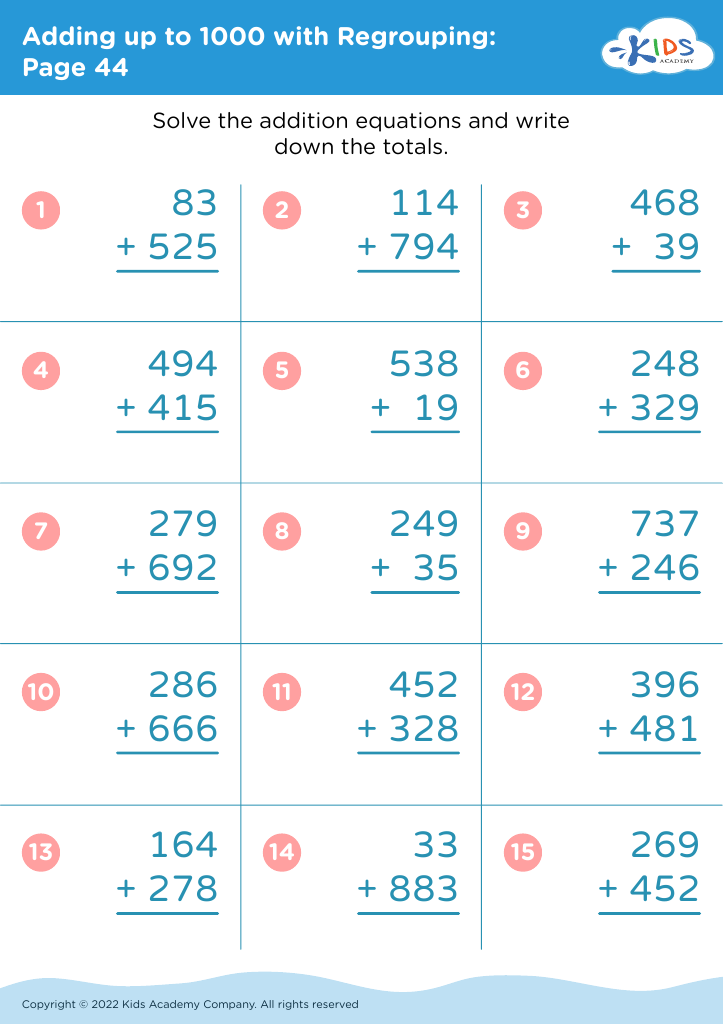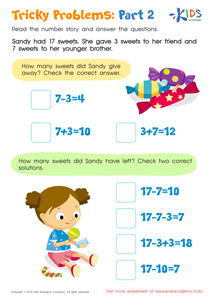Recognize patterns Grade 2 Adding up to 1000 Worksheets
6 filtered results
-
From - To
Unlock the world of mathematics for your Grade 2 students with our "Recognize Patterns - Adding up to 1000" worksheets! Designed specifically for young learners, these engaging and interactive resources help students identify and understand numeric patterns while honing their addition skills up to 1000. By working through various exercises, children will enhance their critical thinking and problem-solving abilities. Our worksheets are perfect for classroom use or at-home practice, ensuring a comprehensive learning experience. Foster a love for math while building foundational skills that will benefit your students for years to come. Explore our collection today and inspire young mathematicians!
Recognizing patterns in mathematics, particularly in adding up to 1000, is a crucial skill for second graders that parents and teachers should prioritize. First, understanding patterns helps students develop number sense, allowing them to grasp addition's underlying principles. When children see that numbers can be grouped in tens or hundreds, they become more fluent in performing calculations, facilitating quicker and more efficient problem-solving.
Moreover, recognizing patterns fosters critical thinking and encourages students to identify relationships among numbers. This foundational ability is essential for more complex concepts in later grades, building a strong mathematical base. It also enhances engagement in learning, as children experience a sense of achievement when they decode patterns and apply them to different contexts, thereby boosting their confidence.
Furthermore, recognizing patterns lays the groundwork for working with place value, a vital skill for understanding larger numbers. When teachers and parents emphasize pattern recognition, they’re not just teaching addition; they’re equipping students with analytical skills that transcend mathematics and support success across disciplines.
Encouraging children to spot patterns creates a richer, more meaningful learning experience that instills a lasting appreciation for mathematics—an essential component of their educational journey.
